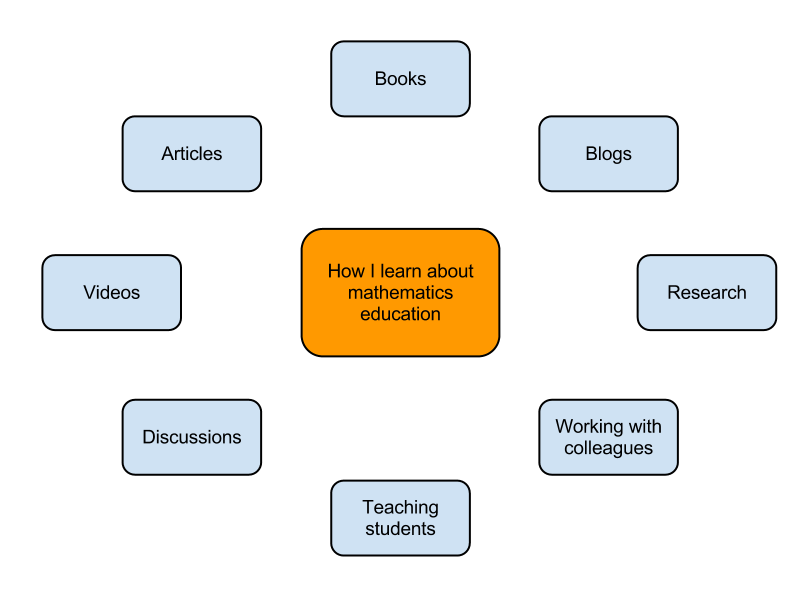
(Image credit: DanCentury)
As usual, there is an argument going on Reddit on mathematics education. There is a statement from that argument that I would like to highlight here, and a related discussion on Reddit with a related comment.
“I solemnly declare that no kid ever learned math by watching a video OR by reading a paragraph, since math is an action [emphasis mine], not an exposure.” deadletter
In a related discussion on resources for a 4th grade student wishing to explore mathematics further, a commenter made this bold claim, in response to someone suggesting that the Khan Academy would not be a good resource:
“Why not? If it’s to pass state Core Standards, it’s more than enough. If it’s to give his daughter who loves math more to learn, it’s more than enough. If it’s to showcase the power and beauty of math, it does that, too.” misplaced_my_pants
These are very different views about what it means to learn mathematics. One person holds that mathematics is an activity that people undertake, the other believes that mathematics is a specific set of knowledge that ones gains through exposure. These are very different definitions of mathematics, and have very different consequences of what would be required to learn mathematics.
I tend to lean toward the mathematics as activity definition, but understand that my responsibility as a teacher is to ensure that my students also know some specific set of mathematics. It’s not a line I’m particularly comfortable straddling and I feel a lot of tension as a teacher as a result. Whenever I have some freedom from the curriculum, I lean heavily toward explorations of math, either as independent activities, or as a group activity.
At the very least, I want my students to know that there are two views of mathematics (which some may consider to be opposing views), and that they should have the ability to make an informed choice between them (or to choose both, if that is even possible).













